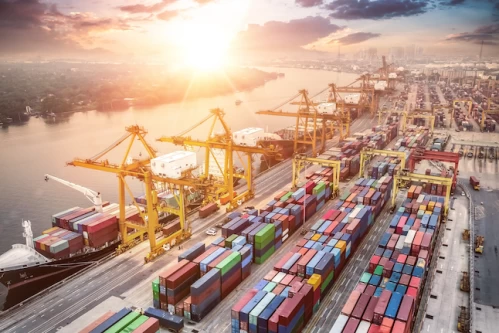In an era defined by rapid globalization, the efficiency of freight networks plays a pivotal role in propelling the pace of global trade. As industries become increasingly interconnected and markets more dynamic, the demand for innovative solutions in freight management has surged. The traditional paradigms of transportation and logistics are undergoing a transformative shift, thanks to cutting-edge technologies and forward-thinking strategies. One of the key contributors to the acceleration of global trade is the integration of advanced technologies like Internet of Things IoT, Artificial Intelligence AI, and blockchain in freight networks. These technologies have enabled real-time tracking and monitoring of shipments, ensuring enhanced visibility and control over the entire supply chain. IoT devices attached to containers provide data on location, temperature, and even the condition of goods in transit. This not only minimizes the risk of losses due to damage but also facilitates proactive decision-making in response to unforeseen events, such as weather disruptions or traffic delays.
 Artificial Intelligence, on the other hand, has empowered freight networks with predictive analytics and optimization algorithms. By analyzing historical data and identifying patterns, AI systems can forecast demand, optimize routes, and streamline operations. This not only reduces operational costs but also enhances the overall efficiency of freight networks. Additionally, AI-driven predictive maintenance ensures that transportation vehicles are well-maintained, minimizing the chances of breakdowns that could lead to delays in the supply chain. Blockchain technology has emerged as a game-changer in ensuring the security and transparency of transactions in global trade. Freight networks often involve numerous parties, including manufacturers, suppliers, carriers, and customs authorities. Blockchain’s decentralized and tamper-proof ledger ensures that each participant in the supply chain has access to real-time, immutable data. This not only reduces the risk of fraud but also expedites the clearance process at customs, cutting down on bureaucratic delays.
Artificial Intelligence, on the other hand, has empowered freight networks with predictive analytics and optimization algorithms. By analyzing historical data and identifying patterns, AI systems can forecast demand, optimize routes, and streamline operations. This not only reduces operational costs but also enhances the overall efficiency of freight networks. Additionally, AI-driven predictive maintenance ensures that transportation vehicles are well-maintained, minimizing the chances of breakdowns that could lead to delays in the supply chain. Blockchain technology has emerged as a game-changer in ensuring the security and transparency of transactions in global trade. Freight networks often involve numerous parties, including manufacturers, suppliers, carriers, and customs authorities. Blockchain’s decentralized and tamper-proof ledger ensures that each participant in the supply chain has access to real-time, immutable data. This not only reduces the risk of fraud but also expedites the clearance process at customs, cutting down on bureaucratic delays.
The rise of innovative freight networks has also been marked by the emergence of collaborative platforms and ecosystems. Digital freight platforms connect shippers with carriers, enabling seamless communication and negotiation. This has led to the optimization of capacity utilization and the reduction of empty cargo space, perbandingan ongkir dakota dan ekspedisi lain contributing to a more sustainable and cost-effective freight industry. Moreover, collaborative networks foster a sense of shared responsibility, leading to increased reliability and responsiveness in the face of disruptions. The adoption of sustainable practices is another hallmark of the transformation in freight networks. With a growing emphasis on environmental conservation, the freight industry is increasingly embracing eco-friendly technologies. Electric and autonomous vehicles, powered by renewable energy sources, are becoming integral to modern freight fleets. These innovations not only reduce the carbon footprint of transportation but also align with global sustainability goals.
